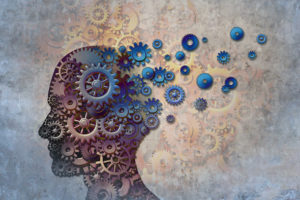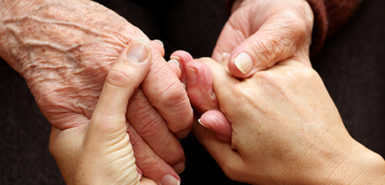
To anyone who has seen someone they love slip into the shadowy world of dementia, Alzheimer’s disease is a dreaded diagnosis.
Most patients don’t seek help until after they notice symptoms, including disruptive memory loss, poor judgment or confusion about place and time.
But an increasing number of people are becoming more proactive, especially as buzz builds around new types of testing.
This includes a simple blood test that may determine—up to 20 years before symptoms appear—who will get the disease. The PET scan with its contrast material that binds to amyloid protein can also show traces of these proteins 20 years before symptoms.
And DNA testing will show if people have the “at risk” genes at any time in their life.
Those with a family history are especially likely to consider testing, since the risk for developing Alzheimer’s increases if a parent or sibling has it.
The trouble? No test is 100% accurate.
And testing can raise more questions than answers. (The Alzheimer’s Association has a rundown on the most common tests.)
Worse, there is still no cure.
Three of the most anticipated clinical trials have recently gone down in flames.
Reluctantly, experts are admitting: The decade-long race to target amyloid protein as the root of the disease has been a bust.
And while doctors can prescribe two different types of medications to treat it, “those drugs just slow the progression of the disease,” said Timothy Thoits, MD, a neurologist with Spectrum Health in Grand Rapids. “All of the negative clinical trials have been very discouraging.”
The testing conundrum
While affordable blood tests may be getting closer to reality, most lab tests—including those using spinal fluid—have accuracy rates in the 85% to 90% range, he said.
“That means that the neurological exams, medical histories and cognitive assessments we can already do are just as effective,” he said.
He acknowledges that the news that a person is likely to develop Alzheimer’s—or may even already have it—is very weighty.
On the one hand, it might lead to wise decisions, such as updating health care proxies, heartfelt conversations with family members or finally taking a long-delayed vacation.
On the other, it might incite dread and panic—not just for the patient, but for family members likely to wind up as caregivers.
While most patients see a doctor after they’ve begun experiencing symptoms, people concerned about the future should consider seeing a neurologist or primary care provider sooner, Dr. Thoits said.
There are many types of cognitive assessments, including the mini-cognition exams millions of Americans recently watched in an episode of “This Is Us.”
Taking one of these exams while still healthy can give providers a baseline for future comparisons.
But rather than dwell on anxious questions—Will I or won’t I develop this disease?—Dr. Thoits points people to a salient statistic: Up to a third of patients may modify their risk factors, thereby lowering their chances of developing Alzheimer’s.
Consequently, he focuses on changes people can make now that may reduce their risk.
Some tips by age:
- Young adults: Stay in school. Those who pursue higher education develop cognitive reserves that can slow future declines.
- Midlife (ages 45 to 65): Adopt diet and exercise habits that fend off diabetes and high blood pressure, striving for a healthy weight. Treat hearing loss.
- Later in life: Stay mentally, physically and socially active. If you haven’t already, quit smoking and treat depression.
For Dr. Thoits, whose 95-year-old mom has dementia, the concerns are personal.
“I stick mostly to the Mediterranean diet, stay active, including spending time with weights and the elliptical machine,” he said. “Work keeps me mentally engaged and I’m socially active, too.”
But he said it’s also essential to keep cognitive decline, Alzheimer’s disease and other forms of dementia in perspective.
For caregivers who need plenty of support themselves, it helps to find humor in the everyday.
“My mom loves going to a certain restaurant and it’s like a new discovery with every meal,” he said. “She’ll say, ‘This is the best hamburger I’ve ever had!’ even though she’s had the exact same hamburger many times before.”
“Not everything is bad and depressing,” he said. “And people with Alzheimer’s—and their caregivers—find plenty of happiness in their life, too.”
 /a>
/a>
 /a>
/a>
 /a>
/a>
Good story
Thank you, Barb, for your kind comment. We’re glad the article proved to be useful. Best wishes!